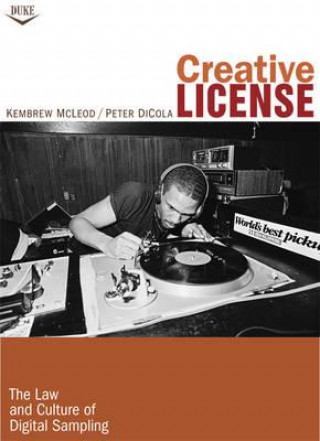
Kód: 04939271
Creative License
Autor Kembrew McLeod, Peter DiCola
How did the Depression-era folk-song collector Alan Lomax end up with a song-writing credit on Jay-Z's song "Takeover"? Why doesn't Clyde Stubblefield, the primary drummer on James Brown recordings from the late 1960s, including " ... celý popis
- Jazyk:
 Angličtina
Angličtina - Vazba: Pevná
- Počet stran: 336
Nakladatelství: Duke University Press, 2011
- Více informací o knize

3557 Kč
Dostupnost:
50 % šance Máme informaci, že by titul mohl být dostupný. Na základě vaší objednávky se ho pokusíme do 6 týdnů zajistit.
Máme informaci, že by titul mohl být dostupný. Na základě vaší objednávky se ho pokusíme do 6 týdnů zajistit.Prohledáme celý svět
Mohlo by se vám také líbit
-

Gateway to the Confederacy
1321 Kč -
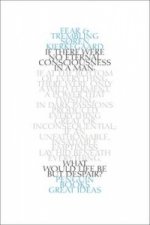
Fear and Trembling
185 Kč -

Unicorns Are Real!
211 Kč -

IncrediBuilds: Harry Potter
289 Kč -

Generalized Concavity in Fuzzy Optimization and Decision Analysis
3313 Kč -

Western Armenian Dictionary & Phrasebook: Armenian-English/English-Armenian
356 Kč -

Making Friends with Money
334 Kč -

Senator Thomas J. Walsh of Montana
1291 Kč -

Political Economy of Environmental Taxes
2990 Kč -
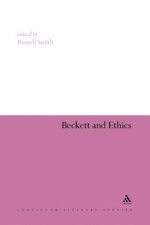
Beckett and Ethics
1741 Kč -

Hu Yao Bang on Turning Point of History
273 Kč -

Alone in the World?
981 Kč -

Global Trends and Global Governance
1148 Kč -

Making Enemies
695 Kč
Dárkový poukaz: Radost zaručena
- Darujte poukaz v libovolné hodnotě a my se postaráme o zbytek.
- Poukaz se vztahuje na celou naši nabídku.
- Elektronický poukaz vytisknete z e-mailu a můžete ihned darovat.
- Platnost poukazu je 12 měsíců od data vystavení.
Informovat o naskladnění knihy
Zadejte do formuláře e-mailovou adresu a jakmile knihu naskladníme, zašleme vám o tom zprávu. Pohlídáme vše za vás.
Více informací o knize Creative License
Nákupem získáte 356 bodů
 Anotace knihy
Anotace knihy
How did the Depression-era folk-song collector Alan Lomax end up with a song-writing credit on Jay-Z's song "Takeover"? Why doesn't Clyde Stubblefield, the primary drummer on James Brown recordings from the late 1960s, including "Funky Drummer" and "Cold Sweat," get paid for other musicians' frequent use of the beats he performed on those songs? The music industry's approach to digital samplingoincorporating snippets of existing recordings into new onesoholds the answers. Exploring the complexities and contradictions in how samples are licensed, Kembrew McLeod and Peter DiCola interviewed more than 100 musicians, managers, lawyers, industry professionals, journalists, and scholars. Based on those interviews, Creative License puts digital sampling into historical, cultural, and legal context. It describes hip-hop during its sample-heavy golden age in the 1980s and early 1990s; the lawsuits that shaped U.S. copyright law on sampling; and the labyrinthine licensing process that musicians must now navigate. The authors argue that the current system for licensing samples is inefficient and limits creativity. For instance, by estimating the present-day licensing fees for the Beastie Boys' Paul's Boutique (1989) and Public Enemy's Fear of a Black Planet (1990), two albums from hip-hop's golden age, the authors show that neither album would be commercially viable today. Observing that the same dynamics that create problems for re-mixers reverberate throughout all culture industries, the authors conclude by examining ideas for reform.
 Parametry knihy
Parametry knihy
Zařazení knihy Knihy v angličtině Law Laws of Specific jurisdictions Intellectual property law
3557 Kč
- Plný název: Creative License
- Podnázev: The Law and Culture of Digital Sampling
- Autor: Kembrew McLeod, Peter DiCola
- Jazyk:
 Angličtina
Angličtina - Vazba: Pevná
- Počet stran: 336
- EAN: 9780822348641
- ISBN: 0822348640
- ID: 04939271
- Nakladatelství: Duke University Press
- Hmotnost: 581 g
- Rozměry: 213 × 182 × 27 mm
- Datum vydání: 14. March 2011
Oblíbené z jiného soudku
-
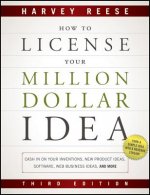
How to License Your Million Dollar Idea
591 Kč -

Intellectual Property: A Very Short Introduction
252 Kč -
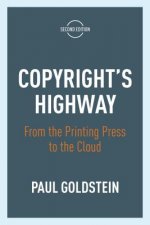
Copyright's Highway
693 Kč -

European Intellectual Property Law
1601 Kč -

Copyright Law for Librarians and Educators
1906 Kč -

European Trade Mark Law
13231 Kč -

Intellectual Property Management - A Guide for Scientists, Engineers, Financiers and Managers
2325 Kč -

Cambridge Handbook of Copyright in Street Art and Graffiti
4894 Kč -

Law and Economics of Intellectual Property in the Digital Age
1823 Kč -
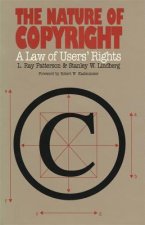
Nature of Copyright
1097 Kč -

Intellectual Property in Electronics and Software
4389 Kč -

Law Express: Intellectual Property Law
544 Kč -

Confusion Test in European Trade Mark Law
6975 Kč -
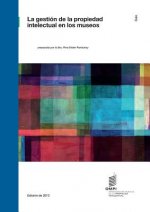
gesti n de la propiedad intelectual en los museos
830 Kč -

Putting Intellectual Property in its Place
5696 Kč -
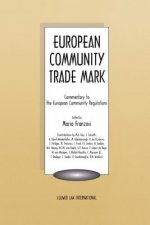
European Community Trade Mark
11660 Kč -

Intellectual Property of Nations
1257 Kč -

Digital Markets Act Digital Services Act
556 Kč -

Intellectual Property, Human Rights and Development
3283 Kč -
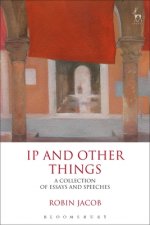
IP and Other Things
4450 Kč -
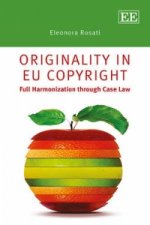
Originality in EU Copyright - Full Harmonization through Case Law
3283 Kč -
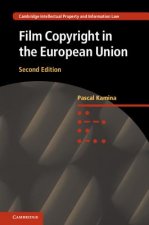
Film Copyright in the European Union
5251 Kč -

Intellectual Property Overlaps
6246 Kč -

Balancing Copyright Law in the Digital Age
1681 Kč -

European Union Design Law
11976 Kč -

International Copyright Law and Policy
8365 Kč -

European Trademark Law
9311 Kč -

Advanced Introduction to International Intellectual Property
644 Kč -

Search Engine Freedom
8594 Kč -
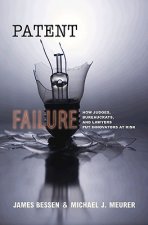
Patent Failure
1185 Kč -
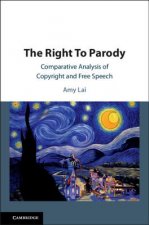
Right To Parody
3804 Kč -

Drafting Patent and Know-How Licencing Agreements
6758 Kč -
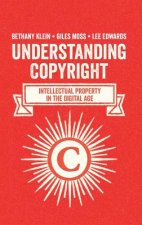
Understanding Copyright
2627 Kč -

Intellectual Property Law and Innovation
3659 Kč -

Art and Authority
2813 Kč -

Intellectual Property and Emerging Technologies
4748 Kč -

Understanding Copyright
1645 Kč -

Global Copyright
5011 Kč -

Supplementary Protection Certificates
6954 Kč -

Consider a Spherical Patent
2272 Kč -
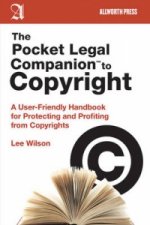
Pocket Legal Companion to Copyright
475 Kč -

Genetic Resources, Traditional Knowledge and the Law
1697 Kč -
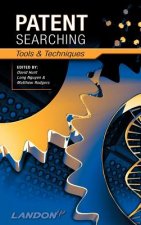
Patent Searching - Tools and Techniques
3282 Kč -

Intellectual Property
5065 Kč -

New Intellectual Property Issues
4212 Kč -
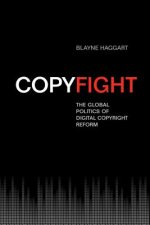
Copyfight
1292 Kč -

Open Source Software and Intellectual Property Rights
8174 Kč -

Exclusive Rights
532 Kč -

Intellectual Property in the Global Trading System
3313 Kč
Osobní odběr Praha, Brno a 12903 dalších
Copyright ©2008-24 nejlevnejsi-knihy.cz Všechna práva vyhrazenaSoukromíCookies


 Vrácení do měsíce
Vrácení do měsíce 571 999 099 (8-15.30h)
571 999 099 (8-15.30h)